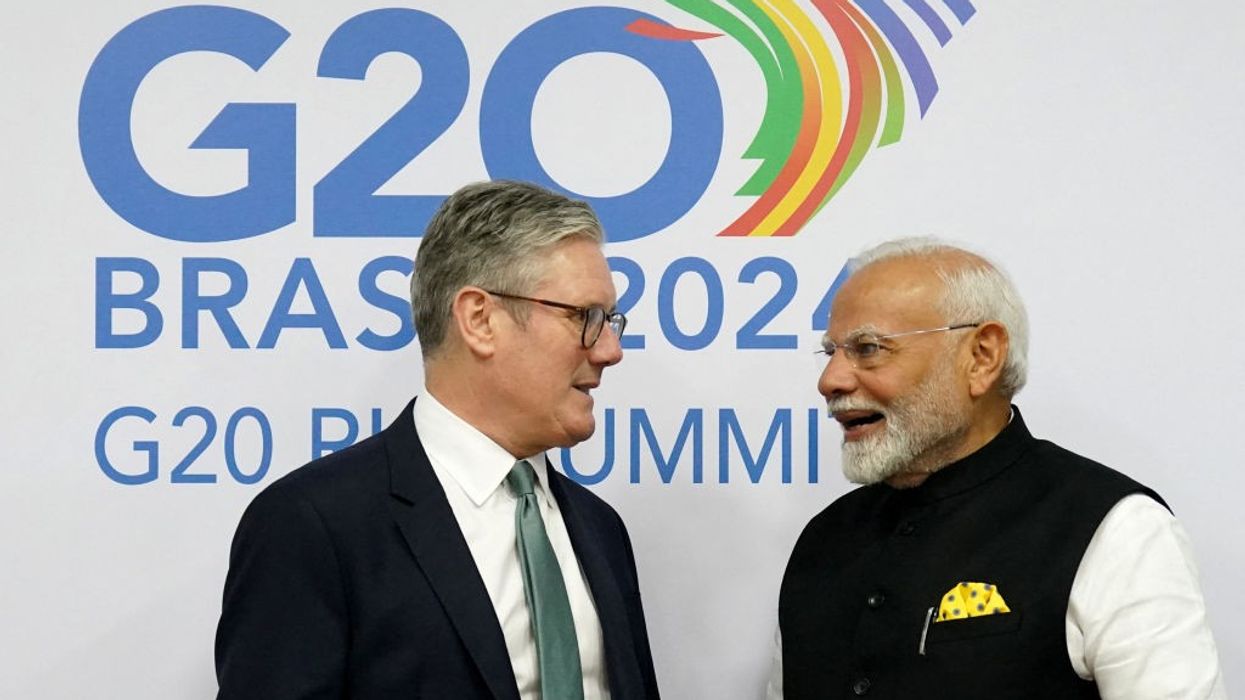THE UK and India are in the final stages of negotiating a free trade agreement (FTA) that could be Britain's most significant trade deal since leaving the European Union in 2020, according to sources close to the talks.
Indian commerce minister Piyush Goyal met UK officials in London this week, with reports suggesting that most issues have now been resolved after intensive negotiations.
"The final yards are always the hardest, but it's moving at breakneck pace," one person close to the discussions told the Financial Times.
According to reports, Goyal informed business leaders that "25 of 26 matters have been agreed" in the negotiations, though UK government sources cautioned that "the last bits are always the trickiest."
The most difficult area yet to be resolved is India's request to be exempted from the UK's planned "carbon border tax" set to begin in 2027, which would add costs to Indian exports such as steel.
"We need some clarification on your carbon border tax on steel and cement, because steel and cement will be important for us to sell you," said Shashi Tharoor, chair of the Indian parliament's committee on external affairs, as reported by Politico.
Another contentious issue involves whether Indian employees transferred to the UK should be exempt from national insurance contributions to avoid "double taxation."
"Essentially, what we're really looking for is something that you have with other countries which allows people who are already paying to their pension pots back home in India [to] be exempted for the period of their stay here," India's top diplomat in London, Vikram Doraiswami, told Times Radio.
India has apparently accepted that Britain will offer only minor changes to its visa regime, with new rules expected to lead to around 100 additional visas for Indian workers yearly, according to a UK official who spoke to Politico.
This represents a significant compromise from India's opening position, which had proposed larger quotas for professionals, particularly in sectors like IT and healthcare.
The negotiations have gained fresh urgency following US president Donald Trump's imposition of new tariffs. Trump has threatened a 26 per cent "reciprocal" tariff on Indian goods, while the UK already faces a 10 per cent levy on its exports to America.
"As Trump's trade war continues, getting a UK-India deal has gone up the scale in terms of political priorities," Tharoor said. "We all need buffers against the global trade uncertainties that have suddenly shot up in people's consciousness."
However, India's finance minister Nirmala Sitharaman rejected suggestions that India was rushing a UK deal because of US actions, saying, "It is not as if we're rushing into a UK (free trade agreement) because something is done by Trump in the US."
The trade talks have been in progress for more than three years, having first begun in January 2022 under then-prime minister Boris Johnson. Negotiations were paused in March last year ahead of elections in both countries before being relaunched in February 2025.
Bilateral trade between India and Britain, the world's fifth and sixth-largest economies respectively, reached £41 billion ($54bn) in the 12 months to September 2024, according to UK government estimates.
A No 10 spokesman said negotiations were "constructive and productive" but added: "We've been clear that we will only sign a deal in our best interest."
Meanwhile, sources suggest a formal agreement might be saved for a future meeting between prime ministers Keir Starmer and Narendra Modi in the coming months.





